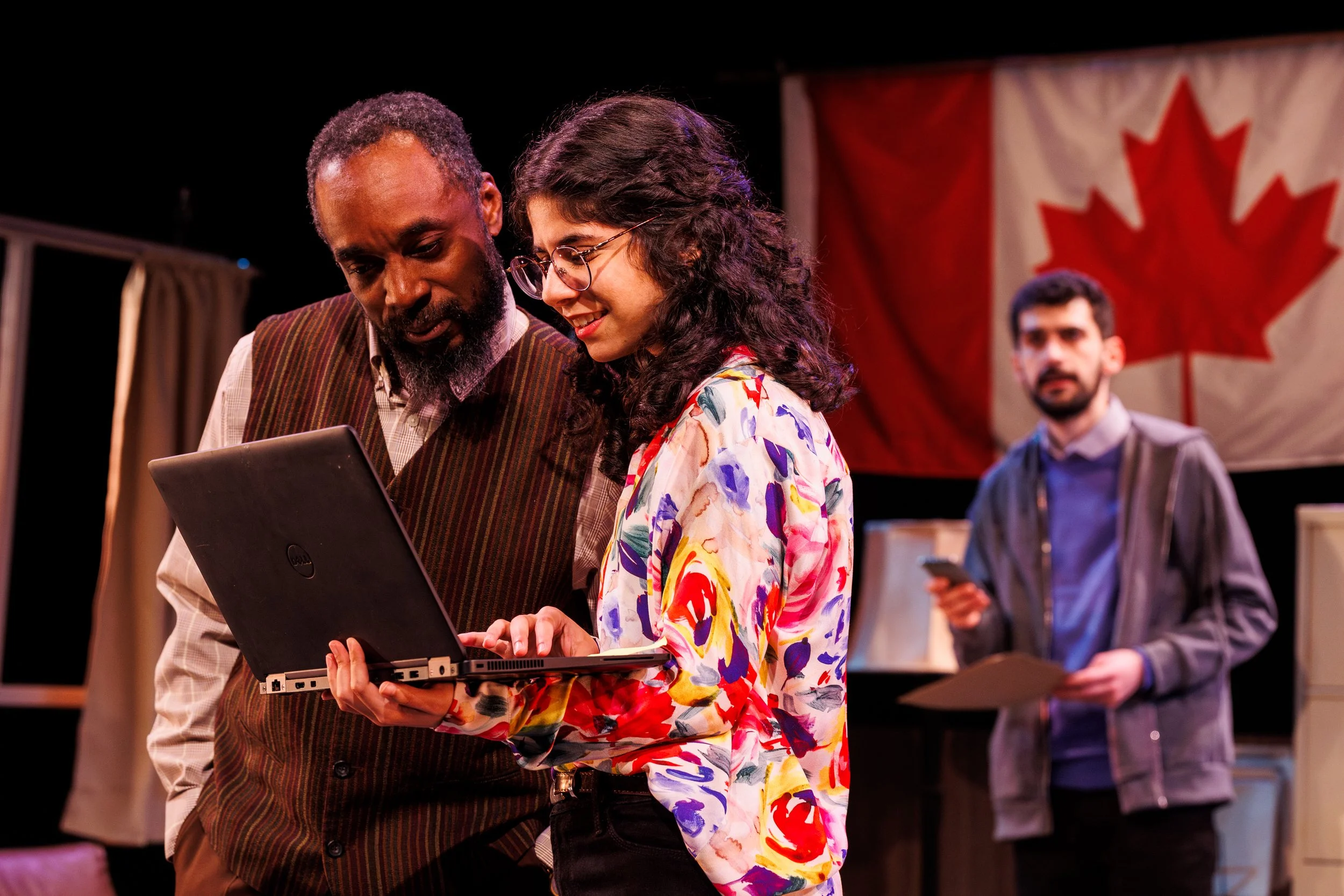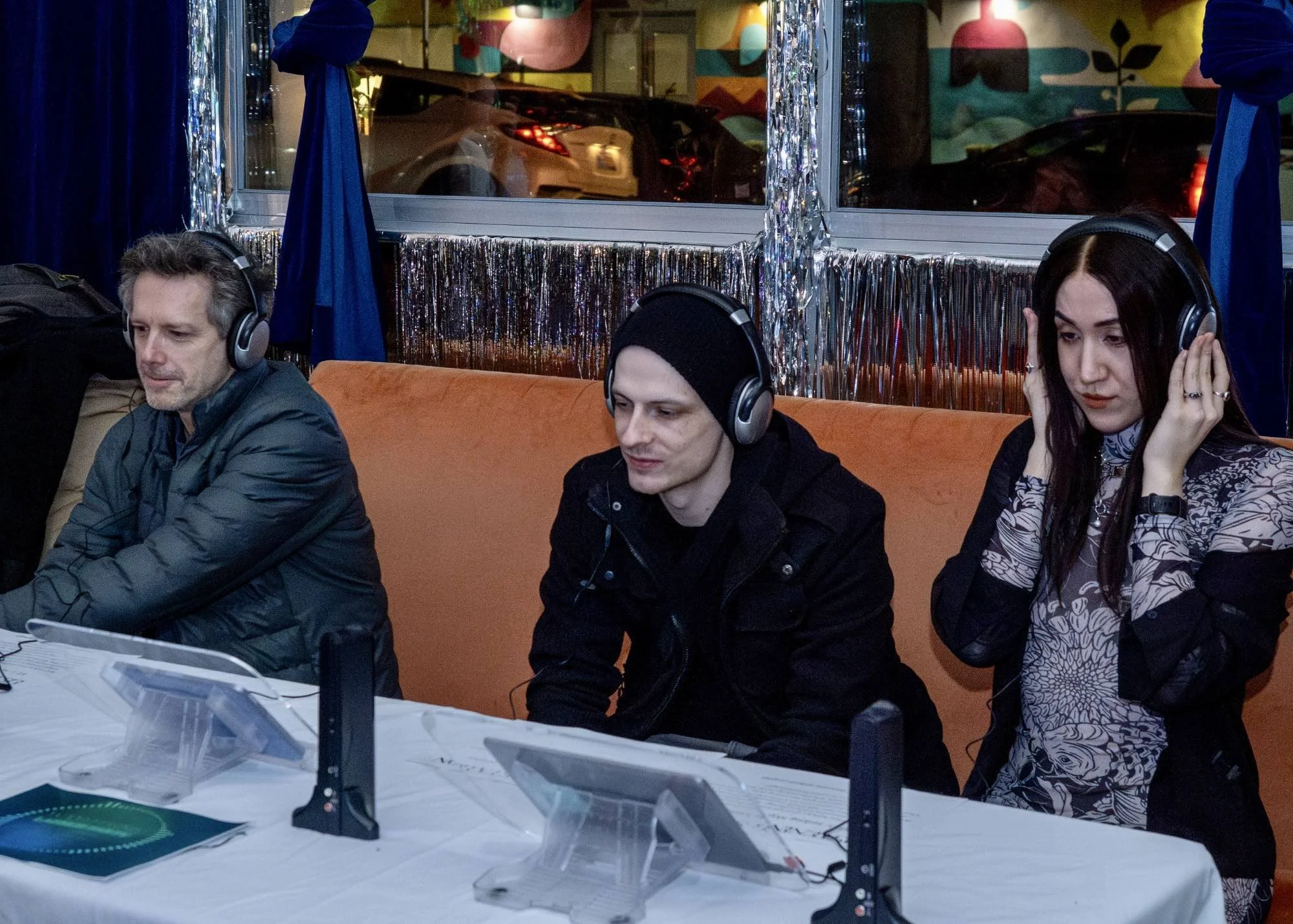Some Assembly Theatre Company’s Our Last Tree tackles climate anxiety and the need for connection
Valerie Methot says new play takes place in the near future, following an apocalyptic storm brought on by climate change
Camille Kang and Alastair Hamann in Some Assembly Theatre Company’s Our Last Tree.
Some Assembly Theatre Company presents Our Last Tree at the Roundhouse Community Arts and Recreation Centre from April 30 to May 3
VALERIE METHOT KNEW that her next play would be centred around climate change after hearing from anxious youth who fear for the state of our planet.
Celebrating its 25th year, Some Assembly Theatre Company soon presents the resulting play, Our Last Tree, at the Roundhouse Community Arts and Recreation Centre’s performance hall.
Written and directed by Methot, the work takes place in the near future, following an apocalyptic storm brought on by climate change. When a spirit guide cuts a deal with three people killed during the disaster, they are brought back to life for 24 hours, promising to strengthen communities and encourage social change.
The audience is welcomed into Our Last Tree with a familiar setting: a parking lot. The stage design also incorporates the windows of three homes, which each look onto a part of a skeletal tree.
“The journey of this play is this urgency to try to save each other—to try to bring the tree back to life,” says Methot.
As a director who works to inspire positive social progress, Methot uses art as a force to stimulate audiences, create connections, and ultimately shed light on the current world around them, in hopes of sparking incentive to enforce and fight for change. A key part of Our Last Tree is that the arts are extinct. So, the play begs the question “Can we bring people together? Can we bring the arts back if that’s what we’re losing?” says Methot.
Methot created Our Last Tree by using a variety of discussions and research inquiries as stepping stones.
“Inspiration for this project came from conversations I had with diverse young people,” she says. They had noticed a trend of apathy among their peers when it comes to climate change.
Throughout these conversations, Methot also observed a perpetual anxiety within members of the younger generation, who feel as though there is no solution to climate change. “They really don’t understand why adults in power positions don’t appear to really care,” Methot says.
Methot and her team conducted a workshop with Willo Prince from Indigenous Climate Action near the beginning of the writing process, which the director notes was pivotal to the creation of the play. “What we gathered from that important workshop was this tremendous importance, this need to connect with each other,” she says.
Alongside meeting with Prince, the team also invited a student from the University of Victoria to conduct a second workshop on climate science.
Methot’s work is informed by conversation, researched and developed through her versatility as an artist. She is not only an experienced playwright, but also a painter and musician. This range of skills allows the Some Assembly executive director to approach her work in a unique way. Visualizing the story of Our Last Tree first as a piece of art, Methot then worked to expand her ideas with a visual artist.
The Some Assembly Theatre Company community is made up of student youth and professional adult artists, who work together to exchange information and ensure that their work in the company is meaningful.
Methot uses her platform as a catalyst for young people’s perspectives to be shared with the world. “That’s why I do this project, because I firmly believe that youth deserve a forum to be heard,” she says.
Some Assembly Theatre Company itself is the recipient of two awards: the City of Vancouver Youth Award for outstanding contribution to the youth community and the Deryck Thomson Award for exceptional contribution to community building and well-being.
“We strongly believe in being inclusive, being accessible, and using theatre arts as a vehicle for positive social change,” Methot says. “To be recognized not only for the art that we create, but also the social change we create, is very meaningful for all of us.”
Our Last Tree came together as a production meant to motivate the audience. Says Methot: “I hope that people are inspired to really turn to the people in their lives and have conversations [about climate change] and encourage people to have conversations so that the weight is not all on young people, we all have a responsibility as inhabitants on the planet Earth." ![]()
Our Last Tree, with Ariyan Ramzan, Charli Kemper-Bird, and Arlo Lim.


























